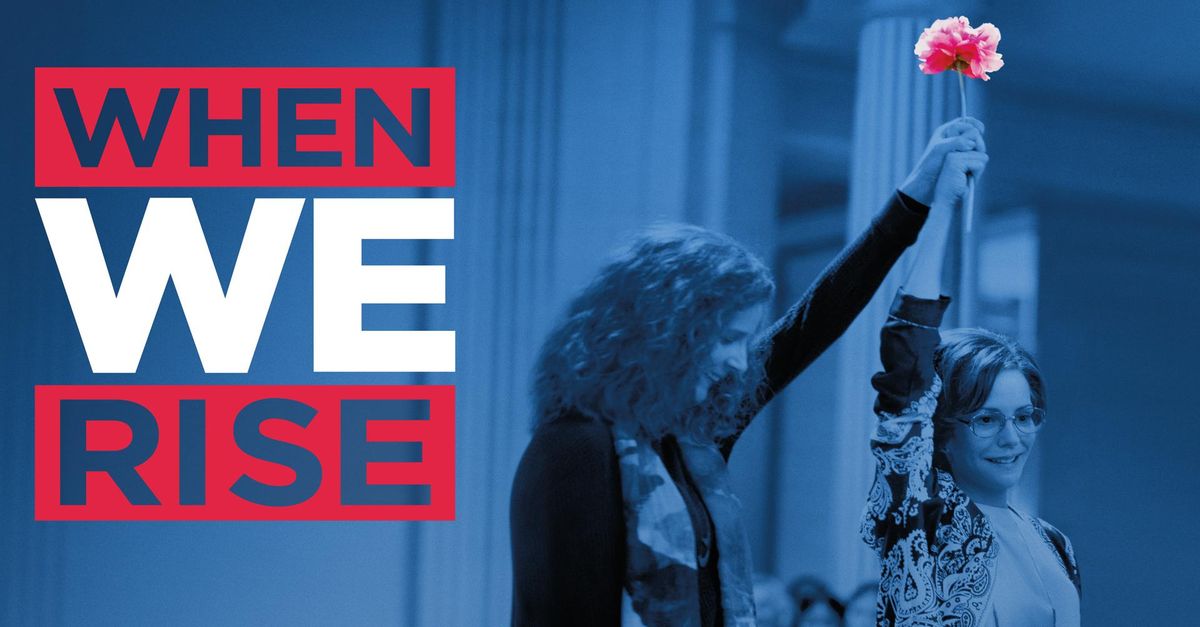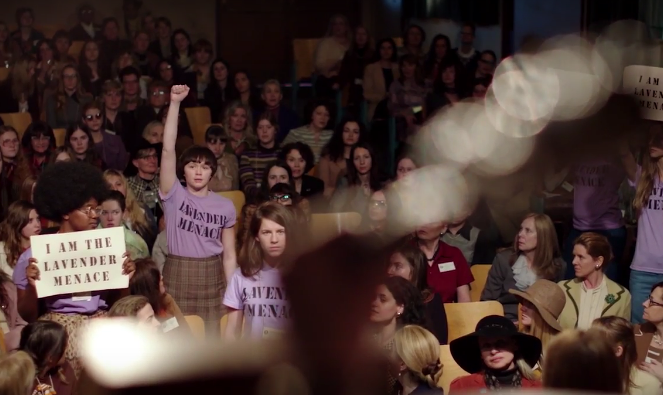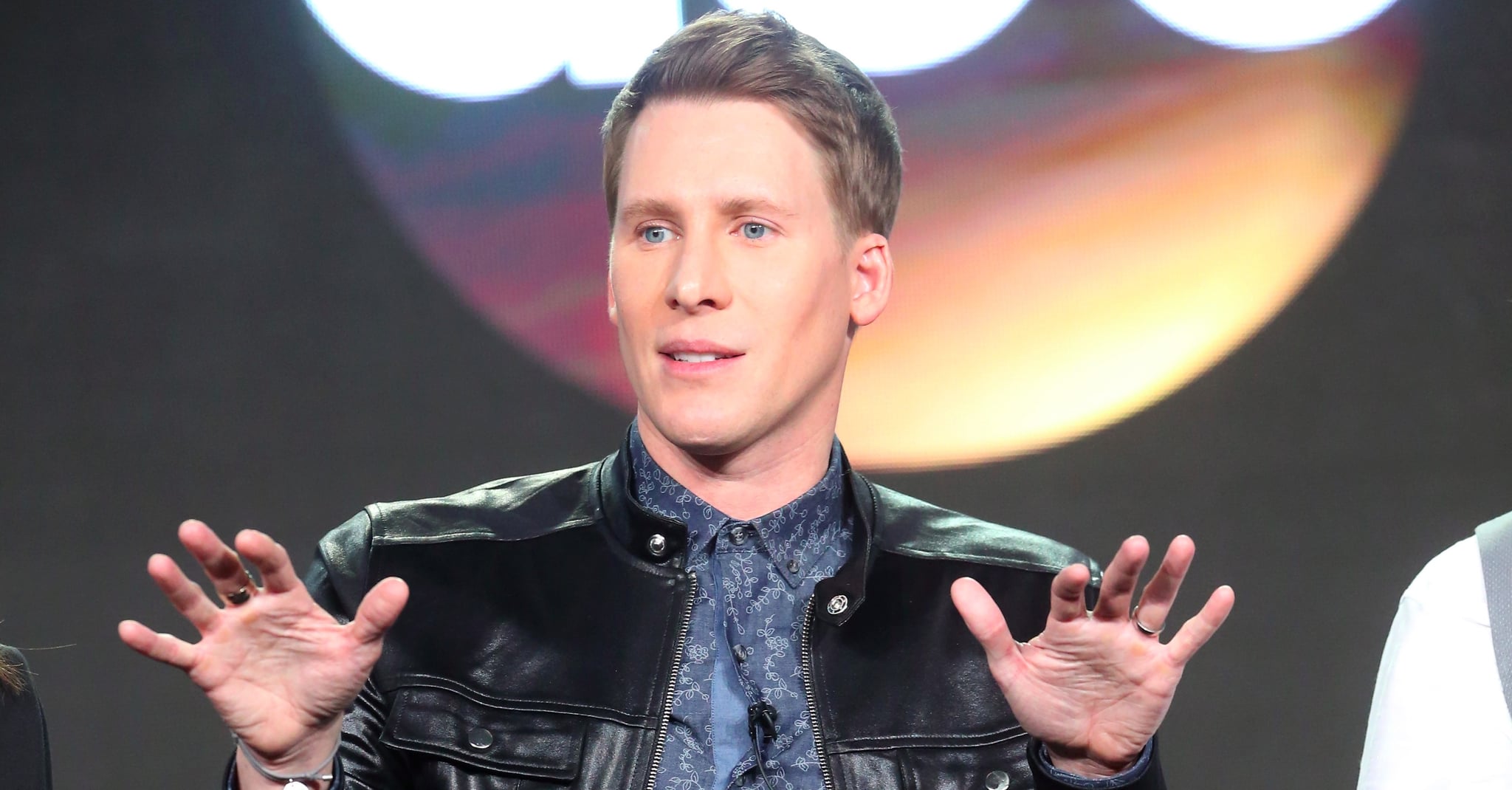ABC’s recent miniseries When We Rise introduces its audience to each of its three main
protagonists the same way: sexually. In Arizona, teenager Cleve Jones is caught
shirtless and making out with a fellow male student. Elsewhere, Peace Corps volunteer Roma Guy
steals a passionate clandestine kiss from her fellow female volunteer as she
prepares to end her tour and return to the United States. In Vietnam, US Naval
Officer Ken Jones meets his shipmate in a shabby room for an illicit tryst.
As such, When We
Rise takes a slightly daring position in not hiding the very thing that
makes most heterosexual people, even ones who are fully supportive of gay
rights, feel squicky about – gay sex. It also meta-textually echoes the entire
thesis statement of When We Rise;
namely, that gay people and gay history shouldn’t remain hidden, even if it makes people uncomfortable to think about. Even in a
post-Obergefell world, that sentiment
is significant and still kind of radical. Watching the seven-hour miniseries,
it really makes you wish the rest of the story had lived up to the promise of those
first ten minutes.
How do you feel about this logo? Just kinda there? Get used to that feeling. It's going to follow you through the entire series.
There’s nothing
inherently offensive about When We Rise, which is sort of its problem. For a series that's all about the struggle of a group of people who literally had to scream in order to be noticed, its tone is entirely the same as a librarian shushing an excited reader. It’s a more-or-less honest take on late 20th/early 21st
century history. Unfortunately, it is to actual
history what Epcot Center is to international relations, full of surface-level
understanding and representation that never tries to peel back the onion any
further than the first layer. By the end of the miniseries, the show’s own
message is somewhat diluted. The audience feels talked at, not brought along.
This is risky, particularly in a world where anyone can say they support LGBT
rights while at the same time supporting leaders
who take those rights away.
If the goal is to foster an understanding in the viewing
public of people living differently from them, the key to doing that is to get
people by the emotions, not by the events. Watching When We Rise feels a bit like cramming for a history final where it’s
important to remember when a protest occurred or a law was passed, not the
reasons why those things happened. In
that way, the show lacks a good hook to hang its own message on.
Maybe if they had gotten Kendall Jenner?
That’s one of the reasons why watching it feels so
maddening, because Cleve, Roma, and Ken are all real people, not fictional characters.
Cleve Jones is the creator of the AIDS Memorial Quilt and an activist to this
day. Roma Guy and her wife are the founders of the Women’s Building in San Francisco as well
as numerous health care and homelessness organizations. Ken Jones is arguably
one of the originators of the modern intersectional school of thought linking the
LGBT community with the African American community and beyond. Bottom line:
each one of these real-life heroes have an amazing story to tell and, sadly,
each one feels like they get short shrift even with a biographical miniseries
that takes as long to watch as an average workday.
The show gives us 40 years of history told through these
people’s lives. It’s a shame that during that time we never get to know any of
them. Major events happen off camera or in between chapters where significant
leaps in time occur. AIDS becomes a major issue for about an hour before
quickly fading into the background, even though several major characters become
infected in that time. It’s particularly jarring when, roughly halfway through
the miniseries, the actors playing the younger twentysomething versions of
their characters are replaced by the actors who take on the middle-aged and
older versions. While that transition in any biopic is always potentially
awkward, it feels even more so here partially due to the skill level difference
between the younger actors and their far more experienced older counterparts.
It is a requirement that all LGBT activists have practiced left arm-raising skills.
Mary-Louise Parker, playing the older Roma, arguably does
the most heroic work, molding the character into someone who more or less
sounds like a real human being. Guy Pierce likewise manages to find a
compelling core to the elder Cleve, despite being made to utter some truly
cringe-worthy lines. By contrast, Michael K Williams is criminally underused as
the older version of Ken Jones. The storyline for his younger counterpart,
played by Jonathan Majors, is probably the best thing about the early hours of
the miniseries, as it outlines the struggles that Ken faces not only as a gay
man but as a black one as well, continually set apart from both communities in
one way or another. The added focus on his transition from military officer to
private civilian in a city that, for the first time, affords him some avenues
for expression makes Williams’ portrayal feel almost sidelined when Jones’s
story starts to fall by the wayside in the second half.
And you guys. We need
to talk about the dialogue. It’s hard to waltz around this; it’s just bad.
Characters don’t have dialogue, they have talking points and thesis statements.
Cleve and Roma, in particular, seem to only speak to other people as if they’re
reading from a particularly overly dramatic college essay. So much of their
dialogue seems designed solely for the writers to convey their various mission
statements instead of dramatizing real events. “You all are more powerful than
you know,” says the Widow
Norton in a particularly clumsy cameo during one early scene. “When did you
first know…that you needed to rise?” asks a young writer of the adult Cleve,
establishing a framing device for the entire miniseries that would be dropped
two hours later. The cardinal rule of writing is “show, don’t tell.” In that
vein, When We Rise misses the mark
almost universally.
Which, frankly, is surprising. The project is based off
the real life memoirs of Cleve Jones, published in 2016. The head writer is
Dustin Lance Black, the Oscar-winning writer of Milk. Gus Van Sant directed the first two hours of the series. Thomas
Schlamme, a long-time television veteran probably most famous for being one of
the chief creative forces behind The West
Wing lends the show a polished look. Whatever you think about any one of
those three people, they are established professionals at what they do. Yet
somehow, there’s never a moment when the series becomes anything more than the
sum of its parts. I'm not sure who is to blame, but those who know me should know that I always think even the best performances can't overcome shabby writing.
thot
When We Rise
does do some things right. Unlike recent
questionable attempts at dramatizing LBGT history, the miniseries is smart
to tell the stories of three different kinds of LGBT people, not just white
men. In addition to Roma (a woman) and Ken (a black man), the show finds time
to introduce other LGBT pioneers, most notably Cecillia Chung (played
by Ivory Acuino) and Pat Norman
(played by Whoopi Goldberg).
It also shows that the LGBT community is not, actually,
always one big happy family. The series illustrates the factions that develop
in the long struggle for rights and showcase how those factions can work at
odds to each other. That it does this non-judgmentally is one of its strength;
the series isn’t pointing fingers here, it’s merely highlighting the notion
that just because people can be grouped together in one category does not make
them a unified voice.
Ultimately, When We
Rise is attempting to bite off more than it can chew. Even confining itself
to only 40 years of history still feels rushed, particularly considering that
it has to find ways to keep tabs on the lives of three very dynamic people when
an eight-hour biography on just one of them would have taken the same amount of
time. The series wants to present a sweeping epic of gay rights, however any
attempt to do that in a way that would do it justice would take days, not
hours. Gay rights did not begin in the 1970s and they do not end with marriage
equality. And while it is refreshing to see the stories of people who have
mostly been ignored by history finally getting some attention, the rushed pace,
explain-y dialogue, and uneven casting results in a story that never feels
exciting.









